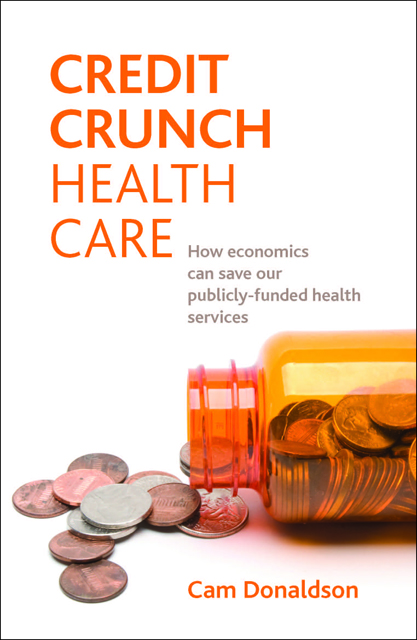Book contents
- Frontmatter
- Dedication
- Contents
- List of figures, tables and boxes
- About the author
- Acknowledgements
- Foreword
- one Introduction: the quid pro quo of health care
- two Market failure and health care
- three Charging the public: exception or anomaly?
- four Reform, privatisation and those damn doctors
- five The fiscal future of health care: an economistâs rant
- six Economic evaluation
- seven Whatâs your health worth?
- eight Conclusion
- Appendix: 'What's your health worth?' A questionnaire
- Index
Appendix: 'What's your health worth?' A questionnaire
Published online by Cambridge University Press: 15 April 2023
- Frontmatter
- Dedication
- Contents
- List of figures, tables and boxes
- About the author
- Acknowledgements
- Foreword
- one Introduction: the quid pro quo of health care
- two Market failure and health care
- three Charging the public: exception or anomaly?
- four Reform, privatisation and those damn doctors
- five The fiscal future of health care: an economistâs rant
- six Economic evaluation
- seven Whatâs your health worth?
- eight Conclusion
- Appendix: 'What's your health worth?' A questionnaire
- Index
Summary
Governments around the world are always having to think about how much to spend on the health of their population and what priority to place on different ways of improving health.
One way of helping them to do this is to ask members of the public about how much they personally value different types of health improvement.
This is what we want to do with you in this questionnaire. Imagine that your health service is as efficient as it can be and that to buy âextra healthâ you would have to pay out of your own pocket; you can even think of this as some form of taxation if you wish.
In this version of the questionnaire, we will ask you to make some assumptions about your age (you are a 40-year-old) and how long you might live, and also to assume you are in full health. In the online version of the questionnaire, we ask you to state your actual age, estimate how long you will live and to rate your health status and we then base the questions on these responses. So, the questions in the online form are tailored to you and are thus more realistic.
What follows is the slightly less realistic form of the questionnaire. On average, most people can expect to live for 80 years.
If we equate 0 with âbeing deadâ and 1 to being in âfull healthâ, if people were to live each of these 80 years in the best of health for all ages, we would expect your 80 years to look like this:
For you, as a 40-year-old, this would mean that, if you live the rest of your life in full health, your remaining 40 years would look like this:
1. Now, imagine that, in one yearâs time, rather than living the next four years in full health, you will experience an illness that reduces your health to 75% (or 0.75) of full health, after which you will return to full health for the remaining years of your life. This is illustrated in this next diagram, where your âlossâ in health is shown by the dark-shaded area.
- Type
- Chapter
- Information
- Credit Crunch Health CareHow Economics Can Save Our Publicly Funded Health Services, pp. 123 - 136Publisher: Bristol University PressPrint publication year: 2011



